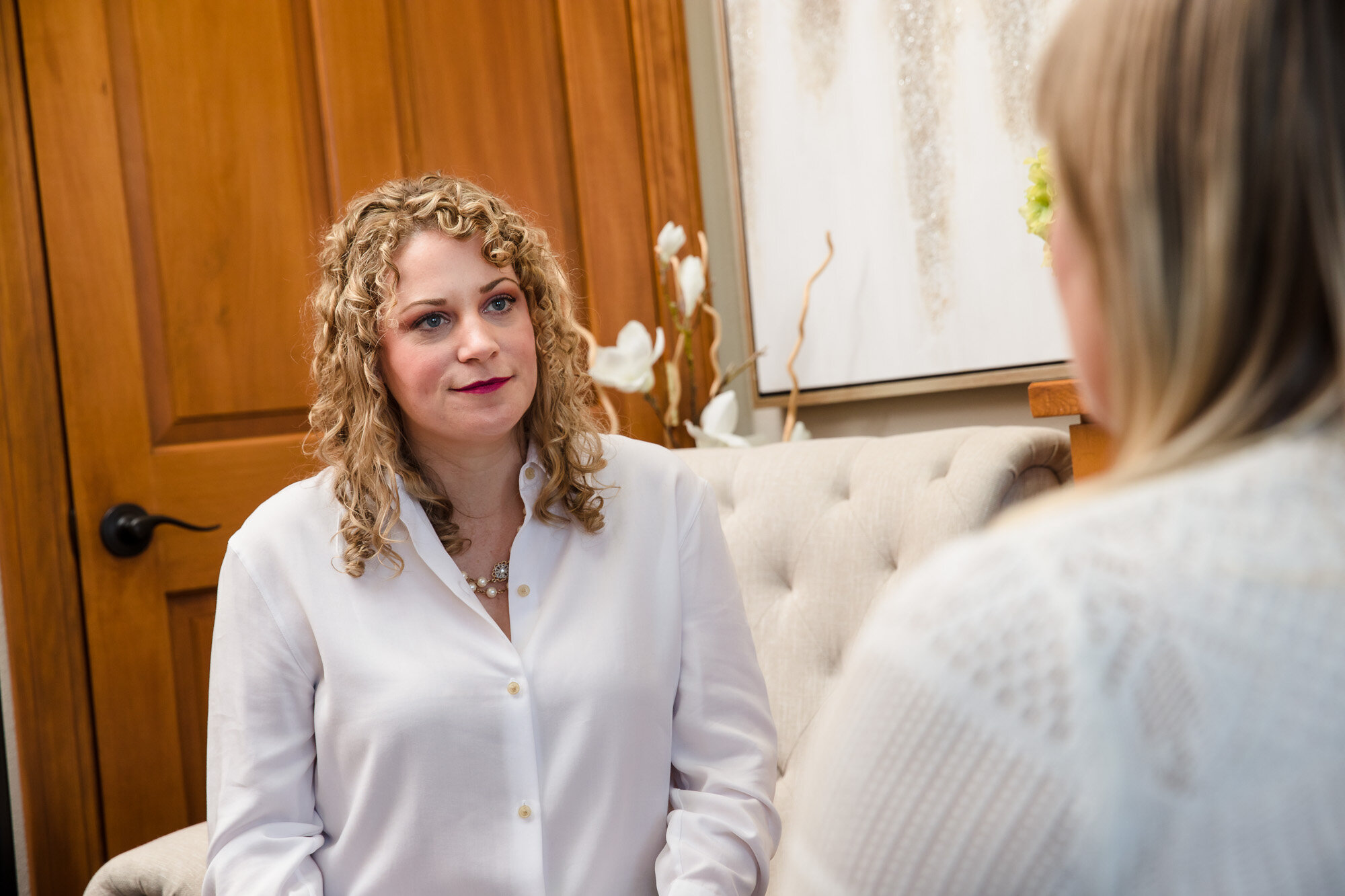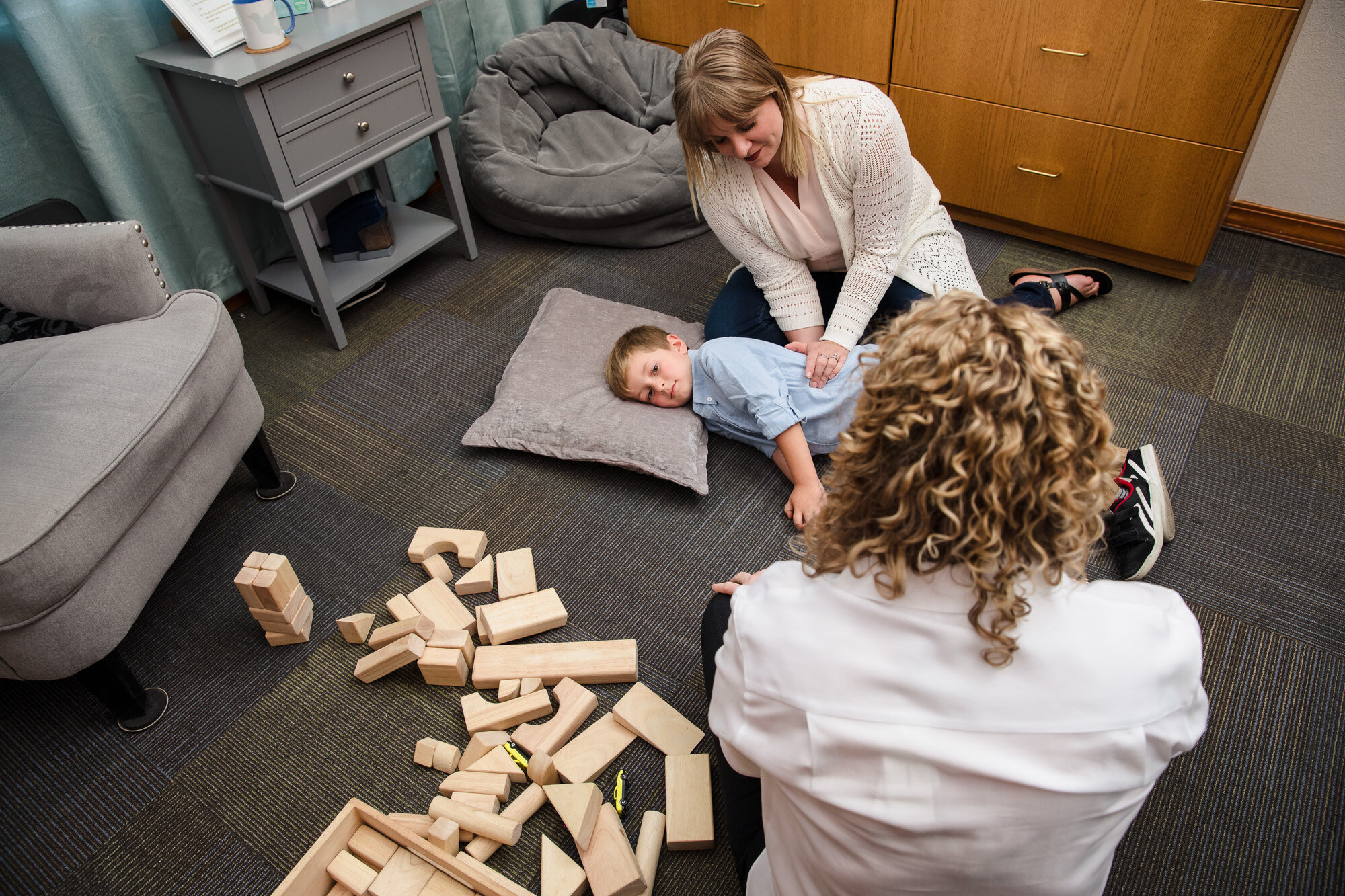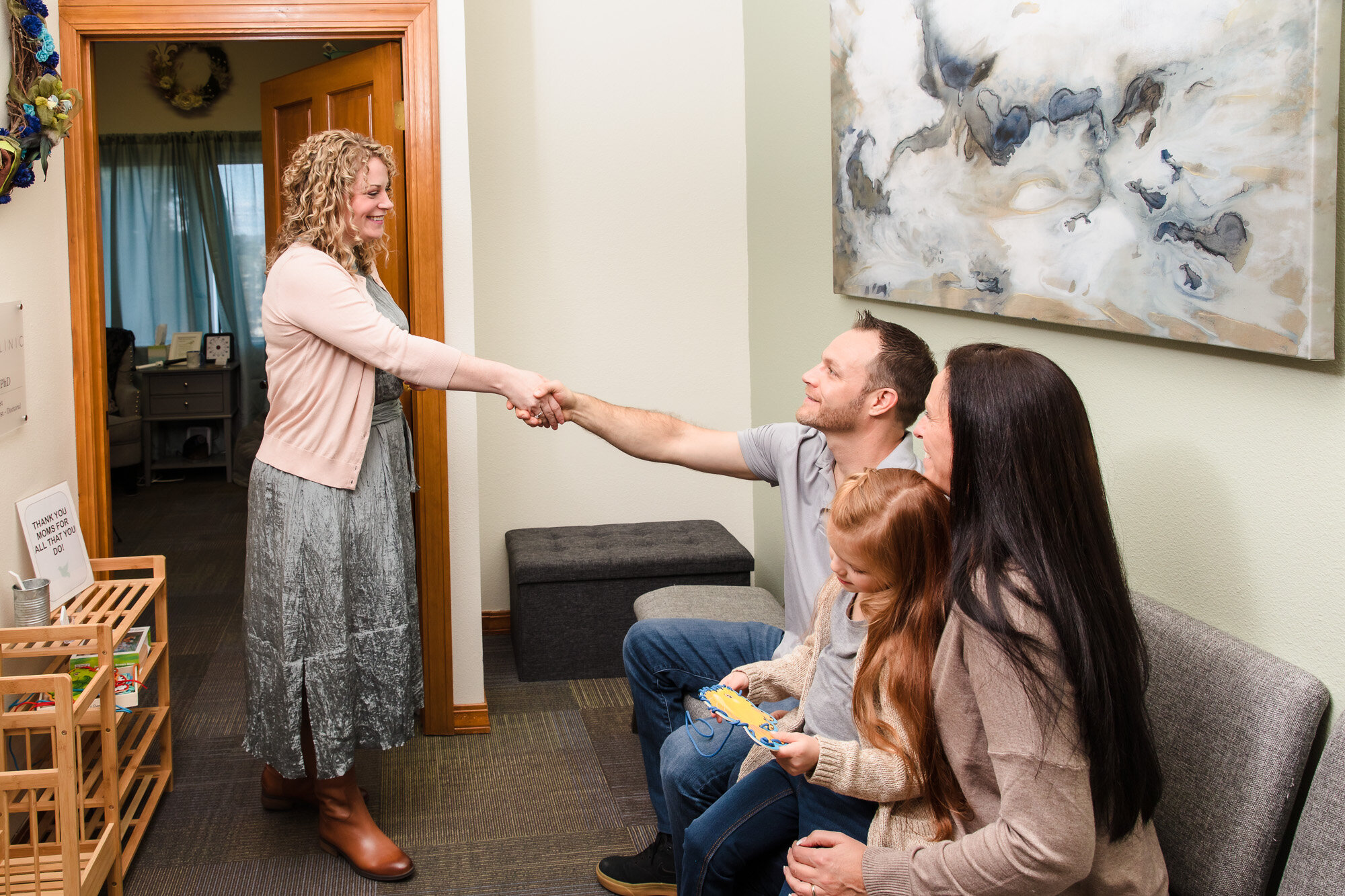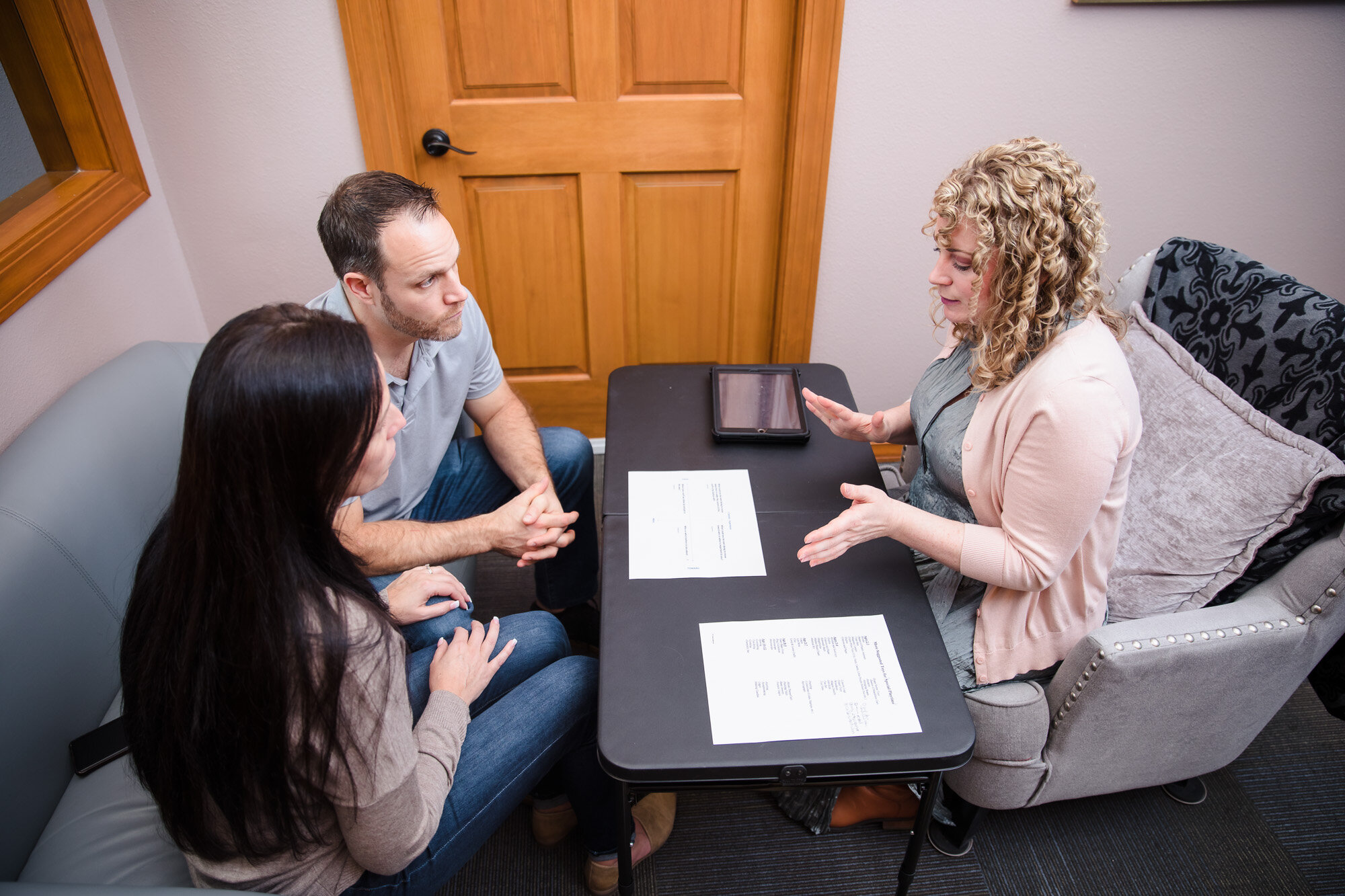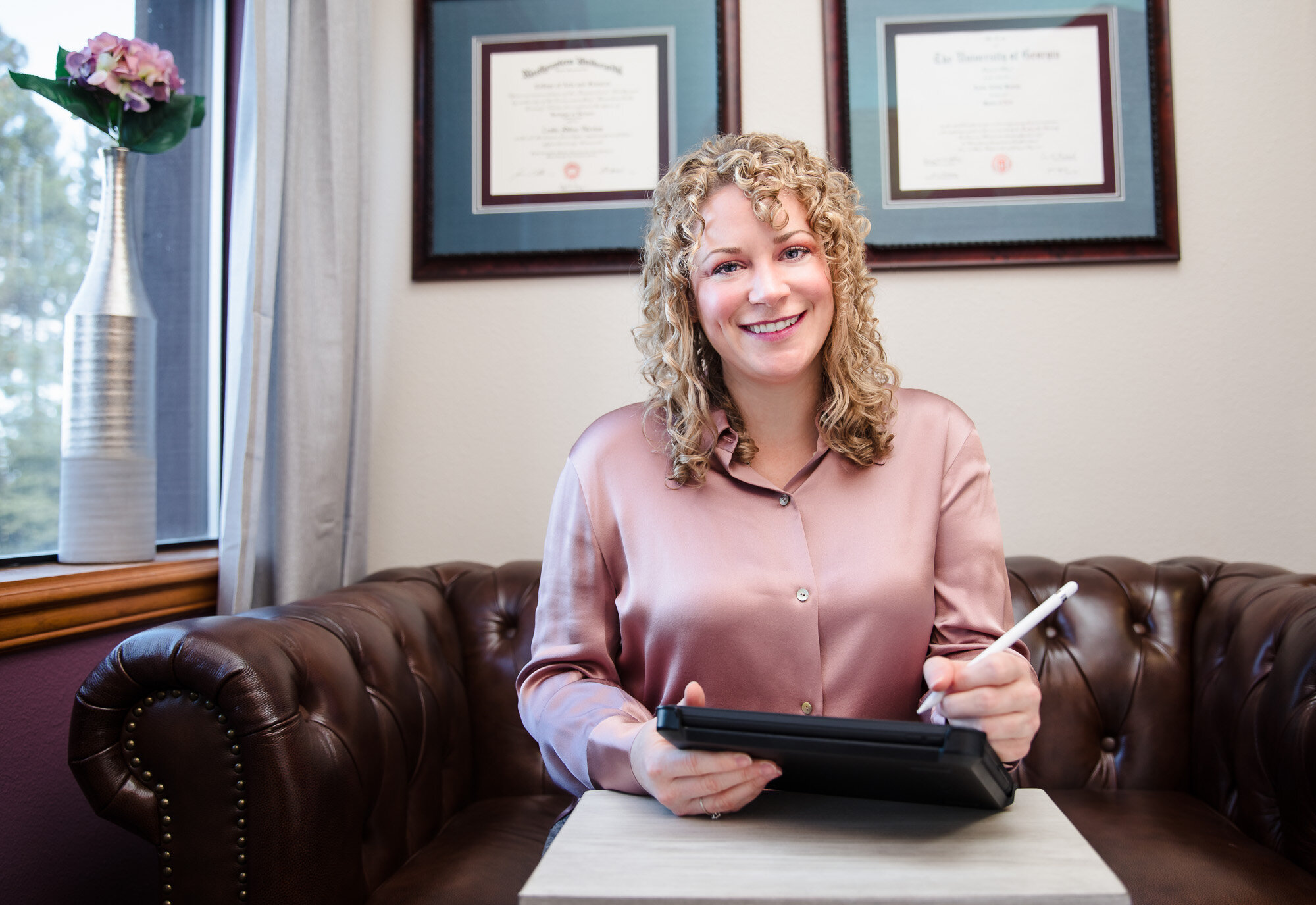Hi Parents, Teachers, and Providers!
If you're like me, you've been a bit more stressed recently. It's hard not to be. On top of normal everyday life stress, we're having a pandemic and a long awaited social awakening to systemic racism.
It's hard to be present and feel 100% everyday. So, I wanted to share how I'm taking care of myself. I'm specifically going to focus on mindfulness and body awareness. They go hand-in-hand, of course. And if you feel this is a little woo woo of a topic, just hold on through the next paragraph...
Psychiatrist Bessel Van Der Kolk, M.D. wrote a New York Times Best Seller on trauma and the body, The Body Keeps the Score, that went into amazing detail about how our bodies hold the scars of emotional, verbal, and systemic trauma (in addition to physical trauma of course) through dysregulation of our fight or flight or freeze response. In the short term this can lead to poor sleep, digestive distress, and irritability. But, the long term consequences can be devastating. The ACEs Study found that chronic diseases, like hypertension, alcoholism, depression, drug abuse, eating disorders, obesity, and other poor future behaviors and outcomes, like high-risk sexual behaviors, smoking, and suicide and more likely to occur in adulthood with increased risk factors in childhood, including multiple forms of trauma. See ACEs Info here.
When I work with a child, I always consider the parents a vital part of the treatment team. Moms and dads must have the emotional and physical space to give themselves room to grow, to feel curious about their assumptions as they learn new skills, and the grace not to expect perfection from themselves. This means I'm often helping moms and dads learn to relax into the present moment, identify their values that trigger them wanting to support their child, and accept the uncomfortable feelings that come with the growth process. When I reflect on any time of growth in my life, I remember that it was coupled with feelings of stress. Late nights studying. Justifying my life decisions to family. Whatever it may have been, the stress was their- especially in the beginning of the journey. I feel like our society is at the beginning of a growth journey right now. The stress is normal, and my values tell me that I want to grow and be better at listening and supporting equity every day.
It's important to me to remember that I'm on a journey that I'd like to last 100 years. I have to take care of myself if I'm going to live fully each day of that life. To do this, I have found walking everyday to be something that works best for me. Here's why: Walking is a monotonous, repetitive activity. That makes it very good for reducing trauma and stress symptoms, per Dr. Van Der Kolk. Additionally, walking has cardio benefits, which support healthy hormone and brain chemical functioning. I was walking 50 minutes per day, which is one lap around my neighborhood (I walk reallly slow) but I recently doubled it. Research suggest that just 30 minutes of moderate cardio will get you all the feel good natural chemical effects you need each day. Bonus points if you can do it in nature and extra bonus points if you can do all 30 minutes at the same time.
Something that has helped me to remain consistent with my walking routine is to acknowledge those crummy feelings when I don't feel like going out for a walk. Many times my thoughts go like this: "It's okay to not want to walk today. However, you're too important to not walk, so you're going to do it anyway." This particular way of talking to myself is 1) positive (no self-criticism here! It doesn't work btw!) 2) It accepts my yucky feelings when I don't feel like walking. And 3) It states my value that I care about me. Number 3 is one I never really considered until I learned ACT (Acceptance and Commitment Therapy). Why didn't I care enough about me to take care of me before?! Revolutionary!
Maybe walking is for you or maybe not. Just replace walking with some other activity that makes you feel good: basketball, crocheting, hiking, gardening, painting, etc. For kids, repetitive back-and-forth activities are very good to help them regulate, per my reading of The Body Keeps the Score. Try playing catch!
Another great way to reduce the tension that can store up in your body is Progressive Muscle Relaxation. The video today will specifically show you how to do progressive muscle relaxation. This is a muscle tension exercise that helps your brain and the nerves in various muscles across your body to communicate better. It helps you go from a generally tense state to a more relaxed state. Be careful about doing this one if your muscles are prone to muscle cramping. And remember to always chat with your physician before starting any physical exercise routine.
If you've found today's learning video helpful, stay in touch!! Subscribe on YouTube, Facebook (both @EnildaClinic), or get videos right to your inbox.
Have a great day!
Dr. Blevins

